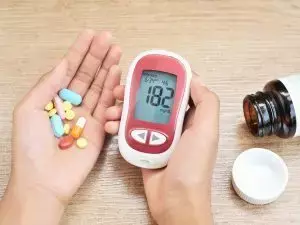- Home
- Medical news & Guidelines
- Anesthesiology
- Cardiology and CTVS
- Critical Care
- Dentistry
- Dermatology
- Diabetes and Endocrinology
- ENT
- Gastroenterology
- Medicine
- Nephrology
- Neurology
- Obstretics-Gynaecology
- Oncology
- Ophthalmology
- Orthopaedics
- Pediatrics-Neonatology
- Psychiatry
- Pulmonology
- Radiology
- Surgery
- Urology
- Laboratory Medicine
- Diet
- Nursing
- Paramedical
- Physiotherapy
- Health news
- Fact Check
- Bone Health Fact Check
- Brain Health Fact Check
- Cancer Related Fact Check
- Child Care Fact Check
- Dental and oral health fact check
- Diabetes and metabolic health fact check
- Diet and Nutrition Fact Check
- Eye and ENT Care Fact Check
- Fitness fact check
- Gut health fact check
- Heart health fact check
- Kidney health fact check
- Medical education fact check
- Men's health fact check
- Respiratory fact check
- Skin and hair care fact check
- Vaccine and Immunization fact check
- Women's health fact check
- AYUSH
- State News
- Andaman and Nicobar Islands
- Andhra Pradesh
- Arunachal Pradesh
- Assam
- Bihar
- Chandigarh
- Chattisgarh
- Dadra and Nagar Haveli
- Daman and Diu
- Delhi
- Goa
- Gujarat
- Haryana
- Himachal Pradesh
- Jammu & Kashmir
- Jharkhand
- Karnataka
- Kerala
- Ladakh
- Lakshadweep
- Madhya Pradesh
- Maharashtra
- Manipur
- Meghalaya
- Mizoram
- Nagaland
- Odisha
- Puducherry
- Punjab
- Rajasthan
- Sikkim
- Tamil Nadu
- Telangana
- Tripura
- Uttar Pradesh
- Uttrakhand
- West Bengal
- Medical Education
- Industry
Semaglutide, optimal therapy for type 2 diabetes with few side effects: Study

Egypt: Tirzepatide, oral, and subcutaneous (SC) semaglutide have a favorable efficacy for type 2 diabetes treatment, according to results from a meta-analysis. The adverse events were found to be comparable to placebo; however, a high rate of gastrointestinal adverse events was seen in tirzepatide, oral, and SC semaglutide groups.
The study, published in Diabetes & Metabolic Syndrome: Clinical Research & Reviews, showed that semaglutide at 1 mg SC weekly dose and 14 mg oral dose were the favorable doses. Also, semaglutide showed more reduction in fasting blood glucose, HbA1c, and body weight versus other anti-diabetic medications.
The study was conducted by Mohamed Sayed Zaazouee, Faculty of Medicine, Al-Azhar University, Assiut, Egypt, and colleagues with the objective to assess the safety and efficacy of semaglutide compared with placebo and other anti-hyperglycaemic agents in type 2 diabetes (T2DM).
For this purpose, the researchers searched the online databases for relevant randomized controlled trials (RCTs). To compare different doses, durations, and interventions in T2DM, a network meta-analysis was conducted. The results were presented as mean difference (MD) or relative risk (RR).
Salient findings of the study include:
- Twenty-six included RCTs studied different doses of subcutaneous (SC) and oral semaglutide, tirzepatide, liraglutide, sitagliptin, canagliflozin, and empagliflozin compared with placebo.
- Tirzepatide showed the highest efficacy, however, it was comparable to semaglutide. SC semaglutide 1 mg once-weekly showed a higher reduction in HbA1c (MD = −1.72), and fasting blood glucose (MD = −1.93) versus placebo at 30 weeks and other time points.
- Adverse events (ADs) were comparable to placebo with oral and SC semaglutide, oral sitagliptin, SC liraglutide, and oral empagliflozin at most time points.
- SC semaglutide 0.8 mg and tirzepatide 10 mg groups had the highest gastrointestinal adverse events.
Based on the results, the researchers concluded, "semaglutide has a high probability of being the optimal therapy for type 2 diabetes."
Reference:
Zaazouee, Mohamed Sayed, et al. "Semaglutide for the Treatment of Type 2 Diabetes Mellitus: a Systematic Review and Network Meta-analysis of Safety and Efficacy Outcomes." Diabetes & Metabolic Syndrome, vol. 16, no. 6, 2022, p. 102511.
Dr Kamal Kant Kohli-MBBS, DTCD- a chest specialist with more than 30 years of practice and a flair for writing clinical articles, Dr Kamal Kant Kohli joined Medical Dialogues as a Chief Editor of Medical News. Besides writing articles, as an editor, he proofreads and verifies all the medical content published on Medical Dialogues including those coming from journals, studies,medical conferences,guidelines etc. Email: drkohli@medicaldialogues.in. Contact no. 011-43720751


